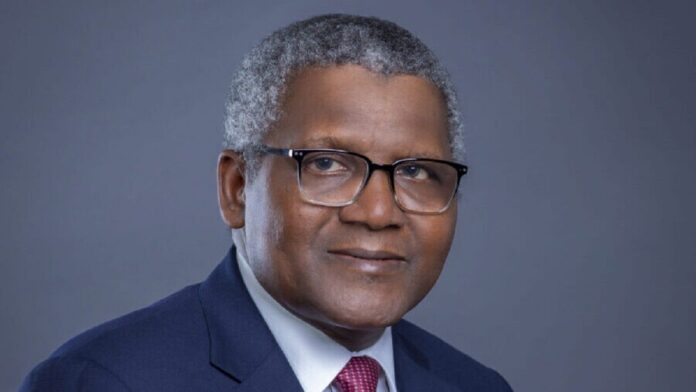Africa’s richest man and President of the Dangote Group, Aliko Dangote, has revealed that truck drivers working for his company earn more than many university graduates in Nigeria.
Speaking during an interview on Arise Television on Tuesday, Dangote said that his drivers earn almost four times the national minimum wage, which is currently ₦30,000 per month.
“Our drivers earn more than graduates,” he said. “If you look at what they earn in a month, it’s almost four times the national minimum wage.”
This means Dangote’s truck drivers may be earning over ₦100,000 monthly, placing them well above many low and mid-level earners in the country.
Dangote also stated that truck driving at his company is a serious and well-paying job, adding that some of the drivers even qualify for housing loans after five years without any accident on duty.
He explained, “After five years free of accidents, a driver can apply and get a house loan. That’s how much we take care of our people.”
His comments come amid ongoing criticism over job losses following the launch of new trucks by the Dangote Group. Some transport unions, including the Nigeria Union of Petroleum and Natural Gas Workers (NUPENG), have raised concerns that the company’s expansion into logistics could affect their members’ jobs.
Responding to those concerns, Dangote said his trucks are not replacing anyone’s job. Instead, he claimed the new trucks will create thousands of new jobs.
“Every truck we launched carries about six people,” he explained. “So these trucks they are fighting over will create 24,000 jobs. We are not using robots to drive them.”
He also said that joining any union, including NUPENG, should remain voluntary, not forced.
The Dangote Group is one of Nigeria’s largest private employers and has interests in cement, sugar, salt, and oil refining. Its newly launched refinery is expected to transform the country’s oil and gas sector.
The company is also expanding its transport operations, a move that has sparked tensions with some unions, but Dangote insists that job creation remains at the heart of their plans.

